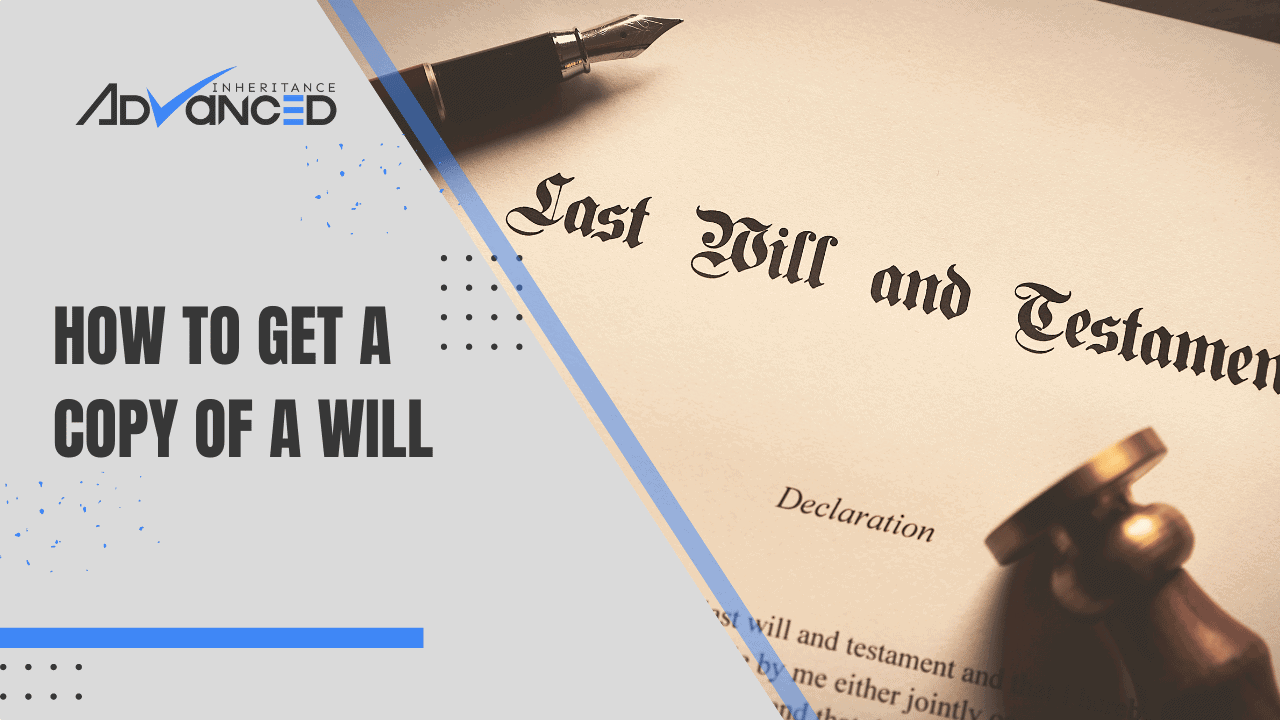In the intricate world of estate planning and inheritance, a will stands as a beacon, guiding the distribution of assets and the fulfillment of a deceased person’s final wishes. Whether you’re an heir awaiting a bequest, an executor tasked with overseeing an estate, or simply a curious individual, accessing a copy of a will can be of paramount importance. But why is a will so crucial, and how does one go about obtaining a copy?
A will represents a person’s intentions and the legacy they wish to leave behind. Not only does it lay out how assets should be distributed, but it also contains instructions that might affect children, businesses, charities, and more. Being able to access and read a will is not only about assets—it’s about understanding and respecting a loved one’s final wishes. It’s important to learn more about how to obtain a copy of a will and to understand the ins and outs of this important legal document so you can empower yourself and your loved ones.
Understanding the Basics
At its core, a will is a legal document that outlines how an individual wishes to distribute their assets and possessions upon their death. This can include everything from real estate and financial investments to personal belongings and even custody arrangements for minor children. Additionally, a will often identifies an executor, the person or entity tasked with ensuring the deceased’s wishes are carried out as stated.
Who Typically Needs a Copy?
While a will is a personal document, its nature means that several parties may need access to it at different times:
- Executors: As the primary overseers of an estate, executors require the will to fulfill their duties in distributing assets and settling debts.
- Beneficiaries: Individuals or entities designated to receive something from the deceased may wish to review the will to understand their inheritance.
- Attorneys: Legal professionals involved in estate planning or the probate process will often need a copy to provide appropriate guidance.
- Probate Courts: Courts involved in validating the will and overseeing the estate’s distribution process will require a copy.
- Creditors: In some situations, those owed money by the deceased may request to view the will to ascertain their rights.
Steps to Obtain a Copy of a Will
One of the most straightforward methods is to reach out to the attorney who assisted the deceased with their estate planning. Many attorneys keep copies of their clients’ wills on file, and if you have a legal right to view it, they may provide you with a copy. If that route is not available to you, here are some other avenues to try.
Check with the Probate Court
If the estate is being probated, the will becomes a public record, making the probate court a reliable avenue to obtain a copy. You can approach the court’s clerk in the jurisdiction where the deceased lived, providing necessary details and potentially paying a nominal fee.
Contact the Executor or Trustee
The executor or trustee, given their pivotal role in estate management, will likely have a copy of the will. If you have a valid reason, they might be willing to share it with you.
Look for Personal Documents
In some cases, especially if the estate is not undergoing formal probate, the will might be stored among the deceased’s personal papers. Searching safes, file cabinets, or other storage areas (with proper authorization) can sometimes yield the document.
Things to Consider When Requesting a Copy
As you journey through the process of obtaining a copy of a will, several considerations might affect your endeavor:
Legal Rights
Not everyone may have the right to view a will, especially before it has been probated. Typically, those directly involved in the estate or those who stand to inherit have the strongest legal standing.
Privacy Concerns
Until a will is entered into probate, it remains a private document. Respecting the privacy of the deceased and their intended confidentiality is crucial. Unauthorized sharing or viewing can lead to legal ramifications.
Potential Costs
There might be associated costs when obtaining a copy of a will, especially from official channels like probate courts or attorneys. Ensure you’re prepared for any fees, and always inquire about costs upfront.
What If the Will Can’t Be Found?
In certain situations, despite best efforts, the original will might remain elusive:
- Consider Previous Versions: If the most recent will can’t be located, earlier versions might still hold some legal weight. Legal counsel can offer guidance on how these versions might be handled.
- Affidavit of Due Diligence: If you’re the executor and unable to locate the will, you might need to file an affidavit with the court, explaining your thorough search efforts.
- Intestate Succession: In the absence of a valid will, estates often pass through intestate succession, where state laws determine asset distribution. This process typically favors direct relatives like spouses, children, or parents.
Protecting and Storing a Will
For those drafting or updating their will, ensuring its safety and accessibility is paramount. Storing your will is all about ensuring your peace of mind. Once you’ve made the effort to plan for the future, it’s best to make sure there are some safeguards in place, for yourself and your loved ones. Here are a few precautions you can take:
- Safe Deposit Box: A bank’s safe deposit box is a secure location to store important documents, but it’s important to ensure trusted individuals can have access.
- Digital Copies: While the original will holds the most legal weight, digital backups can offer an additional layer of security and ease of access.
- Inform Trusted Individuals: Let executors, attorneys, or close family members know the location of the will to avoid future challenges.
Understanding Wills And Other Legal Documents
At Inheritance Advanced, we’re here to help you navigate the estate planning process. Knowledge is power when it comes to wills and inheritance law, and our team of experts is always ready to provide guidance and support. Whether you need help managing an estate or securing an advance on your inheritance, we’re here to help.
Remember, every situation is unique, and what works best for one person may not work as well for another. Always seek professional advice when dealing with estate matters. Contact us today at Inheritance Advanced to learn more about how we can assist you with your financial planning needs.









